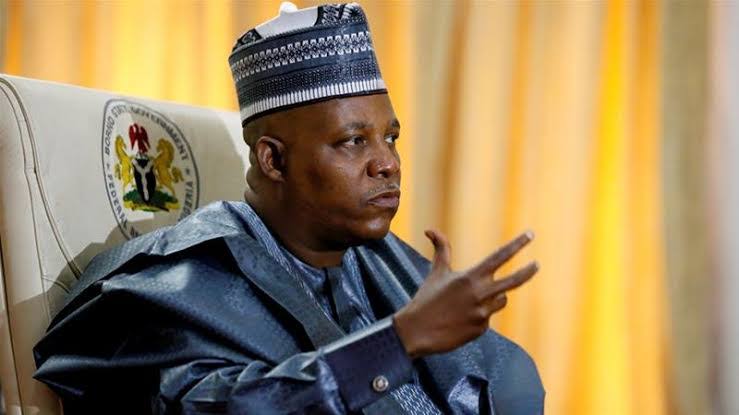Sustained reforms returning CBN to profitability - Daily Trust
One of the key pillars of Mr. Olayemi Cardoso since he assumed office as the governor of the Central Bank of Nigeria (CBN) is to transform the Bank thorugh sustained reforms in monetary policies.
While delivering his first major address as Governor of the Central Bank of Nigeria (CBN) on November 25, 2023, the governor had assured investors and the business community that the country’s economy would soon witness significant stability in both monetary and fiscal sides.
“We will tackle institutional deficiencies, restore corporate governance, strengthen regulations, and implement prudent policies. We assure investors and the business community that the economy will experience significant stability in the short-to-medium term as we recalibrate our policy toolkits and implement far-reaching measures,” Cardoso declared during his keynote speech at the Chartered Institute of Bankers of Nigeria (CIBN) 58th annual Bankers’ Dinner in 2023.
According to him, stabilising the exchange rate, is a critical foundation for broader economic health while emphasising the imperative of transparency, pledging to create a market-driven environment where exchange rates are fairly determined, ensuring predictability for businesses and households alike.
Through targeted policies, transparent market operations, and stronger coordination between monetary and fiscal authorities, Cardoso outlined a pathway to a more stable exchange rate regime, lower inflation, and an overall more enabling environment for economic growth.
These reforms almost two years down the line have yielded an avalanche of results, one of which is returning the Bank to positive growth.
Return to positive balance sheet
Only recently, the Central Bank of Nigeria (CBN) released its 2024 audited financial statements, reporting a profit after tax of N38.8 billion, a rebound from the N1.15 trillion loss recorded in the 2023 financial year.
According to the report, the strong performance was driven largely by strong growth in interest income and other operating income, particularly net unrealized foreign exchange revaluation gains of N11.28 trillion, up 225% year-on-year.
This surge contributed to a total operating income of N15.1 trillion, compared to N5.9 trillion in 2023.
While the CBN recorded a 29.16% year-on-year increase in interest income to N5.1 trillion (from N3.95 trillion in 2023), interest expenses surged even more dramatically, rising by 185% to N4.979 trillion.
As a result, net interest income plunged by 94% to N122.91 billion, down from N2.2 trillion in the previous year.
The financial statements were prepared in line with the International Financial Reporting Standards (IFRS) and the guidelines of the Financial Reporting Council of Nigeria (FRC), including the 2023 amendments to the CBN Act and the FRC Act.
The accounts were audited by KPMG Professional Services and Ernst & Young and signed by Akinyemi Ashade and Abiodun Akinnusi, respectively, both dated 30 April 2025.
According to the statement, the Group’s negative performance reflects a challenging macroeconomic environment during the year. In compliance with the Fiscal Responsibility Act 2011, the CBN noted that 20% of the profit will be credited to retained earnings, while the balance will be transferred to the Federal Government of Nigeria.
Highlights of the report
The CBN’s consolidated total assets rose sharply to N117.60 trillion as at 31 December 2024, up from N87.88 trillion recorded a year earlier. Separately, the Bank’s total assets increased to N117.44 trillion from N86.83 trillion.
Similarly, Cash and bank balances declined significantly to N34.72 billion from N111.15 billion, while external reserves grew to N54.73 trillion, up from N29.98 trillion in 2023. IMF Holdings of Special Drawing Rights (SDRs) also increased to N6.36 trillion from N3.95 trillion.
Meanwhile, loans and receivables dropped to N10.96 trillion compared to N15.09 trillion in 2023, indicating lower credit exposure during the period.
On the liability side, banknotes and coins in circulation rose to N5.44 trillion, from N3.65 trillion, while total deposits climbed to N52.38 trillion, up from N38.18 trillion the previous year. The value of Central Bank of Nigeria Instruments issued increased to N24.27 trillion from N17.40 trillion.
Other liabilities rose to N21.20 trillion compared to N19.02 trillion in 2023, while the IMF-related liabilities stood at N5.07 trillion, doubling from N2.52 trillion recorded previously.
Total liabilities for the Group amounted to N116.59 trillion in 2024, compared to N85.86 trillion in 2023.
The Group’s total equity fell to N1.01 trillion from N2.01 trillion a year earlier. The Bank’s standalone equity also dropped to N728.24 billion, from N882.42 billion in 2023.
Meanwhile, the Bank reported a fair value reserve of N800.78 billion as of the end of the year.
The latest numbers mark a significant shift in the CBN’s financial trajectory and may shape monetary and fiscal policy discussions going forward.
Other policy initiatives
As part of continued reforms, the CBN took a strategic step to enhance transparency and boost market confidence with the inauguration of the Nigeria Foreign Exchange Code (FX Code) in Abuja. The FX Code has so far ignited naira stability at both official and parallel markets.
According to Cardoso, the FX Code was built on six core principles: ethics, governance, execution, information sharing, risk management and compliance, as well as confirmation and settlement processes.
These principles, he explained, aligned with international standards while addressing the unique challenges within Nigeria’s foreign exchange market.
According to Cardoso, “The FX Code represents a decisive step forward, setting clear and enforceable standards for ethical conduct, transparency, and good governance in our foreign exchange market. The era of opaque practices is over. The FX Code marks a new era of compliance and accountability. Under the CBN Act 2007 and BOFIA Act 2020, violations will be met with penalties and administrative actions.”
The CBN has stated that while every effort has been made to ensure that the FX Code comprehensively addresses various aspects of market conduct and practice, it is not intended to be exhaustive.
Similarly, the apex bank also introduced the Electronic Foreign Exchange Matching System (EFEMS), which has proven effective in other economies in enhancing the functionality of the foreign exchange market.
The EFEMS was meant to check forex market distortions, eliminate speculative activities and instil transparency. The EFEMS, which is commonplace in developed and developing markets, offers real-time information on currency rates, trading volumes, and market activity.
Also, as part of its efforts to boost diaspora remittances and support naira stability, the CBN recently announced the introduction of two new financial products designed to serve Nigerians living abroad.
The Non-Resident Nigerian Ordinary Account and the Non-Resident Nigerian Investment Account was created to streamline remittances, encourage investments, and foster financial inclusion among Nigerians in the diaspora.
It said, “The Central Bank of Nigeria is pleased to inform the general public of the introduction of the Non-Resident Nigerian Ordinary Account and Non-Resident Nigerian Investment Account targeted at Nigerians in diaspora.”
The initiative is also expected to provide a secure and efficient platform for managing funds and investing in Nigeria’s financial markets.
Accordingly, these and other measures, including the granting of licenses to new International Money Transfer Operators (IMTOs), implementing a willing buyer-willing seller model, and enabling timely access to naira liquidity for International Money Transfer Operators (IMTOs).
Diaspora remittances are a crucial source of foreign exchange for Nigeria, supplementing both foreign direct investment and portfolio investments.
The CBN’s initiatives have supported continued growth in these inflows, aligning with the institution’s objective of doubling formal remittance receipts within a year.
The remittances in the economy are expected to increase based on CBN’s ongoing efforts to bolster public confidence in the foreign exchange market, strengthen a robust and inclusive banking system, and promote price stability, which is essential for sustained economic growth.












